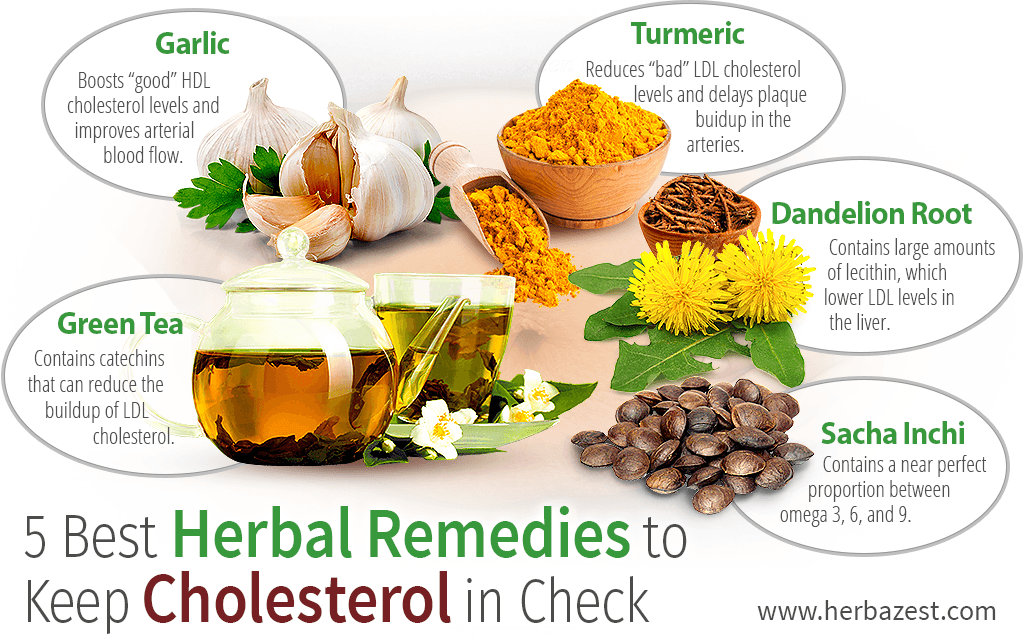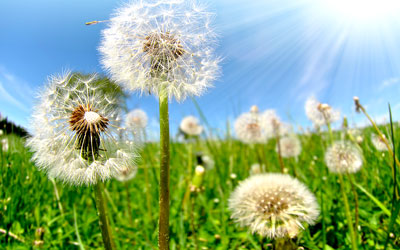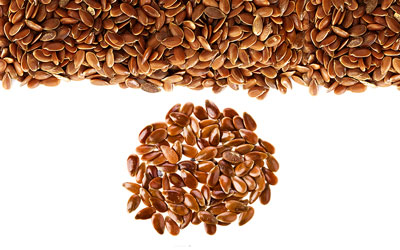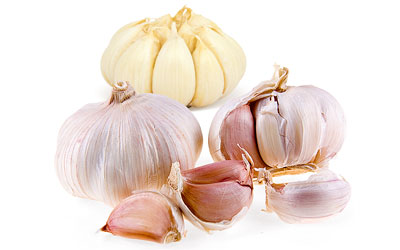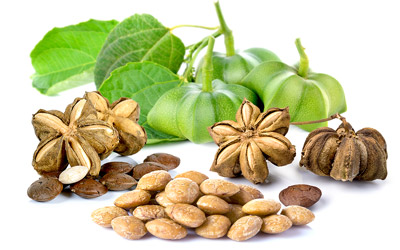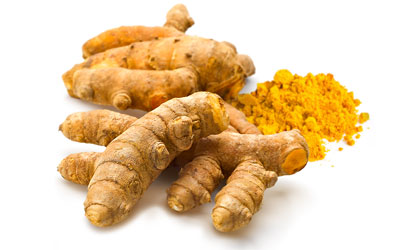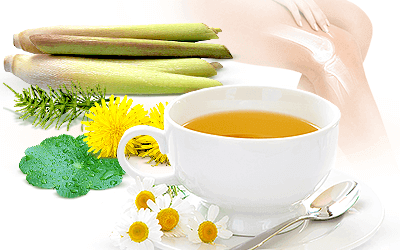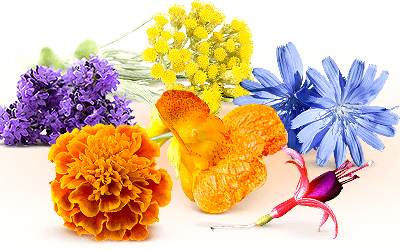Over a quarter of Americans have high levels of low-density lipoprotein (LDL), which is "bad" cholesterol. This is because many people have diets that consist of fatty meats, such as sausage, bacon, ground beef, and steak, as well as an excess in general of poultry, cheese, milk, and trans fat found in processed food.
High cholesterol can make reddish yellow bumps, called xanthomas, appear on your face and body.
LDL is a fatty substance that can cause your arteries to narrow or harden, obstructing blood flow to the heart. This puts people at risk of chest pain, heart disease, or heart attack. One in every four deaths in the United States is caused by heart disease, so it is important to know which herbs can help protect you.
1. Turmeric (Curcuma longa)
Turmeric has been used in Indian Ayurvedic medicine for millennia to treat inflammation, infection, and disease. Cholesterol causes plaque build-up in the arteries, making them narrow and harden, and sometimes causing blood clots or heart attacks.
Turmeric has been found to lower LDL levels and fight plaque buildup whitin the arteries.1 Research shows that it prevents platelets from clumping together as well, which will help you avoid blood clots. Turmeric powder is available from any supermarket or specialty shop, and can be added to any savory meal or blended into fruity smoothies.
2. Garlic (Allium sativum)
This herb is popular for more than its delicious aroma. There are special sulfur-containing antioxidants in garlic, which are great for lowering bad cholesterol.2 An Australian study found that it can lower LDL by 8%. Garlic also boosts "good cholesterol" and high-density lipoproteins (HDL) that remove plaque and improve blood flow. Add raw garlic to sandwiches and salads or cook it into your favorite sauces. If you are feeling daring, eat a bit of the clove on its own.
3. Green Tea (Camellia sinensis)
Green tea contains high concentrations of a very powerful antioxidant called epigallocatechingallate. Studies have found that this antioxidant greatly reduces the buildup of LDL.3 In addition, both the cathechin and polyphenols contained within help prevent bad cholesterol from being absorbed into the intestines. Sipping a cup of green tea in the morning or during the day is the best choice of beverage if you want to protect your heart.
4. Dandelion (Taraxacum officinale)
The root of dandelion contains high levels of lecithin, which has been found to lower LDL and halt its buildup in the liver. It also helps to prevent excess cholesterol from entering the bloodstream. Additionally, it raises levels of "good" HDL, which can further regulate LDL.4 Dandelion root can be found in many teas or in supplementary form through online retailers or at your local health food store.
5. Sacha Inchi (Plukenetia volubilis)
A latecomer to the cholesterol-regulating herb market, this South American Amazon native has been found to contain astonishing amounts of omega 3, 6, and 9. Although still relatively obscure outside of its native region, sacha inchi is now being touted as an ideal source of essential polyunsaturated fats, especially for vegetarians and vegans. Its essential oil has a slightly bitter, nutty flavor that can be very pleasing as a topping for salads, and many of its fans advise the consumption of one or two teaspoons for breakfast every day in order to quickly improve cholesterol levels.5 Interestingly, a study has also found that sacha inchi oil improves lipid metabolism after high-fat meals.6
Since it is such a common health problem nowadays, there are many and more herbal remedies and foods that can help those who need to regulate their cholesterol levels. For example, olives (Olea europaea) and their cold-pressed oil are prized as a good culinary substitution to lower LDL cholesterol levels. Likewise, flax seed oil (Linum usitatissimum) has also been extensively used for this purpose, although its human consumption remains controversial because of the potential toxicity of linamarin, one of its active compounds.
Do not mistreat your heart. If you know you have high cholesterol, make it a point to address the issue in a safe way. More than half of the people who have high LDL do nothing about it. This leads to chest pain, blood clots, heart disease, and stroke. Try shifting your diet to be more plant-based and limit your meat and dairy consumption. This, combined with the healing power of these four herbs, will protect you and your vulnerable, life-sustaining heart.
Sources
- Centers for Disease Control and Prevention, Cholesterol Facts | Heart Disease Facts
- European Journal of Pharmacology, Epigallocatechin Gallete Enhances Biliary Cholesterol Secretion in Healthy Rats and Lowers Plasma and Liver Cholesterol in Ethinylestradiol-treated rats, 2012
- National Institute of Integrative Medicine, Garlic Supplements Reduce High Cholesterol and Decrease Risk of Heart Disease, 2013
- University of Maryland Medical Center, Turmeric | Dandelion | Green Tea
Footnotes:
- Acta Medica Indonesiana. (2008). The effect of curcumin on lipid level in patients with acute coronary syndrome. Retrieved October 18, 2021, from: https://pubmed.ncbi.nlm.nih.gov/19151449/
- The Journal of Nutrition. (2016). Garlic and Heart Disease. Retrieved October 18, 2021, from: https://academic.oup.com/jn/article/146/2/416S/4584712
- The American Journal of Clinical Nutrition. (2011). Green tea intake lowers fasting serum total and LDL cholesterol in adults: a meta-analysis of 14 randomized controlled trials. Retrieved October 18, 2021, from: https://pubmed.ncbi.nlm.nih.gov/21715508/
- International Journal of Molecular Sciences. (2010). Hypolipidemic and Antioxidant Effects of Dandelion (Taraxacum officinale) Root and Leaf on Cholesterol-Fed Rabbits. Retrieved October 18, 2021, from: https://www.ncbi.nlm.nih.gov/pmc/articles/PMC2820990/
- Revista Peruana de Medicina Experimental y Salud Pública. (2011). Effect of sacha inchi oil (plukenetia volúbilis l) on the lipid profile of patients with hyperlipoproteinemia. Retrieved October 18, 2021, from: https://pubmed.ncbi.nlm.nih.gov/22241259/
- Journal of Food Biochemistry. (2018). Metabolic status is related to the effects of adding of sacha inchi (Plukenetia volubilis L.) oil on postprandial inflammation and lipid profile: Randomized, crossover clinical trial. Retrieved October 26, 2021, from https://onlinelibrary.wiley.com/doi/full/10.1111/jfbc.12703


